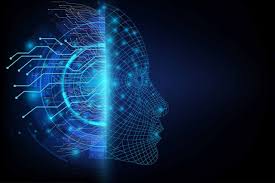Inteligencia artificial en el diagnóstico psiquiátrico: desafíos y oportunidades en la era del aprendizaje automático
DOI:
https://doi.org/10.25118/2763-9037.2024.v14.1318Palabras clave:
inteligencia artificial, diagnóstico psiquiátrico, aprendizaje automático, tecnología de salud mental, psiquiatría personalizadaResumen
La integración de la inteligencia artificial (IA) en el diagnóstico psiquiátrico presagia una nueva era en la atención de la salud mental, ofreciendo oportunidades sin precedentes para mejorar la precisión del diagnóstico, personalizar el tratamiento y optimizar los flujos de trabajo clínicos. Se utilizó un enfoque sistemático, siguiendo las pautas PRISMA (Elementos de informe preferidos para revisiones sistemáticas y metaanálisis). Esta revisión de la literatura explora el estado actual de la IA en el diagnóstico psiquiátrico, destacando tecnologías clave como el aprendizaje automático, el procesamiento del lenguaje natural y el aprendizaje profundo. Discutimos la aplicación de estas tecnologías en diversos trastornos psiquiátricos, incluidas la depresión, la ansiedad y la esquizofrenia. Si bien la IA es inmensamente prometedora, persisten desafíos importantes, incluidos problemas de privacidad de datos, sesgo de modelos y validación clínica de las herramientas de IA. Además, se deben abordar consideraciones éticas y regulatorias para garantizar una implementación responsable. Esta revisión también examina las posibles direcciones futuras de la IA en psiquiatría, enfatizando la importancia de la colaboración entre los sistemas de IA y los médicos humanos. A medida que el campo evoluciona, la IA tiene el potencial de transformar la práctica psiquiátrica, ofreciendo nuevas vías para la detección temprana, la atención personalizada y el seguimiento terapéutico.
Descargas
Métricas
Citas
Garber M. When PARRY met ELIZA: a ridiculous chatbot conversation From 1972. Washington: The Atlantic; 2014. https://www.theatlantic.com/technology/archive/2014/06/when-parry-met-eliza-a-ridiculous-chatbot-conversation-from-1972/372428/
Lindsay RK, Buchanan BG, Feigenbaum EA, Lederberg J. Applications of artificial intelligence for organic chemistry: the Dendral project. New York: McGraw-Hill; 1980.
Lee EE, Torous J, De Choudhury M, Depp CA, Graham SA, Kim HC, Paulus MP, Krystal JH, Jeste DV. Artificial intelligence for mental health care: clinical applications, barriers, facilitators, and artificial wisdom. Biol Psychiatry Cogn Neurosci Neuroimaging. 2021;6(9):856-64. https://doi.org/10.1016/j.bpsc.2021.02.001 PMID:33571718 - PMCID:PMC8349367
Brunn M, Diefenbacher A, Courtet P, Genieys W. The future is knocking: how artificial intelligence will fundamentally change psychiatry. Acad Psychiatry. 2020;44(4):461-6. https://doi.org/10.1007/s40596-020-01243-8 PMID:32424706
Squires M, Tao X, Elangovan S, Gururajan R, Zhou X, Acharya UR, Li Y. Deep learning and machine learning in psychiatry: a survey of current progress in depression detection, diagnosis and treatment. Brain Inform. 2023;10(1):10. https://doi.org/10.1186/s40708-023-00188-6 PMID:37093301 - PMCID:PMC10123592
AI for Precision Mental Health. Kourtzi Z, Liakata M, organisers; Schönlieb CB, Lyons T, Tino P, researchers. London: The Alan Turing Institute; 2019. https://www.turing.ac.uk/research/research-projects/ai-precision-mental-health
Li M, Jiang Y, Zhang Y, Zhu H. Medical image analysis using deep learning algorithms. Front Public Health. 2023;11:1273253. https://doi.org/10.3389/fpubh.2023.1273253 PMID:38026291 - PMCID:PMC10662291
Bracher-Smith M, Crawford K, Escott-Price V. Machine learning for genetic prediction of psychiatric disorders: a systematic review. Mol Psychiatry. 2021;26(1):70-9. https://doi.org/10.1038/s41380-020-0825-2 PMID:32591634 - PMCID:PMC7610853
Dwyer DB, Falkai P, Koutsouleris N. Machine learning approaches for clinical psychology and psychiatry. Annu Rev Clin Psychol. 2018;14:91-118. https://doi.org/10.1146/annurev-clinpsy-032816-045037 PMID:29401044
Zafar F, Fakhare Alam L, Vivas RR, Wang J, Whei SJ, Mehmood S, Sadeghzadegan A, Lakkimsetti M, Nazir Z. The role of artificial intelligence in identifying depression and anxiety: a comprehensive literature review. Cureus. 2024;16(3):e56472. https://doi.org/10.7759/cureus.56472
Shim M, Kim DW, Lee SH, Hwang HJ. Editorial: AI-based computer-aided diagnosis and prognosis for psychiatric disorders. Front Hum Neurosci. 2022;16:901525. https://doi.org/10.3389/fnhum.2022.901525 PMID:35517988 - PMCID:PMC9062226
Ye J, Woods D, Jordan N, Starren J. The role of artificial intelligence for the application of integrating electronic health records and patient-generated data in clinical decision support. AMIA Jt Summits Transl Sci Proc. 2024;2024:459-67. http://www.ncbi.nlm.nih.gov/pmc/articles/pmc11141850/ PMID:38827061 - PMCID:PMC11141850
Perets O, Stagno E, Yehuda EB, McNichol M, Anthony Celi L, Rappoport N, Dorotic M. Inherent bias in electronic health records: a scoping review of sources of bias. medRxiv [Preprint]. 2024:2024.04.09.24305594. https://doi.org/10.1101/2024.04.09.24305594 PMID:38680842 PMCID:PMC11046491
Cresswell K, Rigby M, Magrabi F, Scott P, Brender J, Craven CK, Wong ZS, Kukhareva P, Ammenwerth E, Georgiou A, Medlock S, De Keizer NF, Nykanen P, Prgomet M, Williams R. The need to strengthen the evaluation of the impact of artificial intelligence-based decision support systems on healthcare provision. Health Policy. 2023;136:104889. https://doi.org/10.1016/j.healthpol.2023.104889 PMID:37579545
Farah L, Borget I, Martelli N, Vallee A. Suitability of the current health technology assessment of innovative artificial intelligence-based medical devices: scoping literature review. J Med Internet Res. 2024;26:e51514. https://doi.org/10.2196/51514 PMID:38739911 - PMCID:PMC11130781
Van Laere S, Muylle KM, Cornu P. Clinical decision support and new regulatory frameworks for medical devices: are we ready for it? - A viewpoint paper. Int J Health Policy Manag. 2022;11(12):3159-63. https://doi.org/10.34172/ijhpm.2021.144 PMID:34814678 PMCID:PMC10105190
Karalis VD. The integration of artificial intelligence into clinical practice. Appl Biosci. 2024;3(1):14-44. https://doi.org/10.3390/applbiosci3010002
Rogers WA, Draper H, Carter SM. Evaluation of artificial intelligence clinical applications: detailed case analyses show value of healthcare ethics approach in identifying patient care issues. Bioethics. 2021;35(7):623-33. https://doi.org/10.1111/bioe.12885 PMID:34046918
Pashkov VM, Harkusha AO, Harkusha YO. Artificial intelligence in medical practice: regulative issues and perspectives. Wiad Lek. 2020;73(12 cz 2):2722-7. PMID:33611272
Hassan S. Advancing precision psychiatry: leveraging AI and machine learning for personalized diagnosis, treatment, and prognosis. Tustin: MarkTechPost; 2024. https://www.marktechpost.com/2024/07/29/advancing-precision-psychiatry-leveraging-ai-and-machine-learning-for-personalized-diagnosis-treatment-and-prognosis/
IEEE Pulse. Artificial intelligence and the future of psychiatry. IEEE Pulse; 2020. https://www.embs.org/pulse/articles/artificial-intelligence-and-the-future-of-psychiatry/
Lhotská L. Artificial intelligence in medicine and healthcare: opportunity and/or threat. Cas Lek Cesk. 2024;162(7-8):275-8. PMID:38981711
Sanches M. On the unique utility of digital technology for bipolar disorder: is there still room for phenomenology? Bipolar Disord. 2020;22(5):530-1. https://doi.org/10.1111/bdi.12908 PMID:32276283
Bajwa J, Munir U, Nori A, Williams B. Artificial intelligence in healthcare: transforming the practice of medicine. Future Healthc J. 2021;8(2):e188-94. https://doi.org/10.7861/fhj.2021-0095 PMID:34286183 - PMCID:PMC8285156
DigitalDefynd. 40 detailed artificial intelligence case studies. [place unknown]: DigitalDefynd; c2024. https://digitaldefynd.com/IQ/artificial-intelligence-case-studies/

Descargas
Publicado
Cómo citar
Número
Sección
Licencia
Derechos de autor 2024 Kirolos Eskandar

Esta obra está bajo una licencia internacional Creative Commons Atribución-NoComercial 4.0.
Debates em Psiquiatria permite que el (los) autor (es) mantenga(n) sus derechos de autor sin restricciones. Permite al (los) autor (es) conservar sus derechos de publicación sin restricciones. Los autores deben garantizar que el artículo es un trabajo original sin fabricación, fraude o plagio; no infringe ningún derecho de autor o derecho de propiedad de terceros. Los autores también deben garantizar que cada uno atendió a los requisitos de autoría conforme a la recomendación del ICMJE y entienden que, si el artículo o parte de él es fallido o fraudulento, cada autor comparte la responsabilidad.
Reconocimiento-NoComercial 4.0 internacional (CC BY-NC 4.0) - Debates em Psiquiatria es regida por la licencia CC-BY-NC
Usted es libre de:
- Compartir — copiar y redistribuir el material en cualquier medio o formato
- Adaptar — remezclar, transformar y crear a partir del material
El licenciador no puede revocar estas libertades mientras cumpla con los términos de la licencia. Bajo las condiciones siguientes:
- Reconocimiento — Debe reconocer adecuadamente la autoría, proporcionar un enlace a la licencia e indicar si se han realizado cambios<. Puede hacerlo de cualquier manera razonable, pero no de una manera que sugiera que tiene el apoyo del licenciador o lo recibe por el uso que hace.
- NoComercial — No puede utilizar el material para una finalidad comercial.
No hay restricciones adicionales — No puede aplicar términos legales o medidas tecnológicas que legalmente restrinjan realizar aquello que la licencia permite.





























